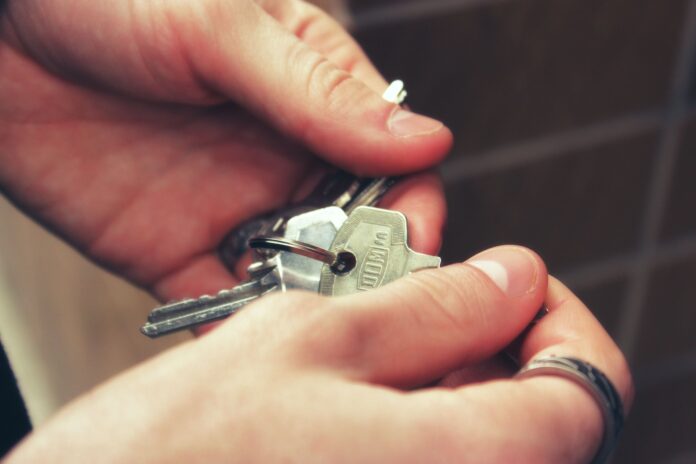
If you are evacuated due to a wildfire, you’ll be anxious to return home.
Officials and the local fire authority will let you know when it’s safe to do so. Your home may be impacted by smoke, soot and ash, chemicals, structural damage and water damage.
For information on evacuation alerts and orders in B.C., or to find a reception centre, visit EmergencyInfoBC or call the provincial Emergency Services Support line at 1-800-585-9559.
Interior Health encourages all residents to register with Emergency Support Services online particularly if you think you could be evacuated.
Upon returning home
Once you’re able to re-enter areas that have been impacted by fire safely, be careful. Take precautions and be aware of hazards to your health and safety. Hazards to watch for include:
- Slip, trip and fall hazards from unstable structures, open pits or wet and slippery surfaces
- Sharp objects, such as nails, metal, concrete or wood debris
- Ash, soot, and demolition dust
- Hazardous materials such as kitchen and bathroom cleaning products; paint; batteries; and pesticide, herbicide and fuel containers that have been damaged or destroyed
- Confined or poorly ventilated areas where carbon monoxide may be present from the operation of pumps, generators, or pressure washers. Be careful entering tight spaces
- Propane cylinders for heating or from BBQ appliances
Cleaning your home
Your insurance policy may cover house cleaning by a fire restoration specialist. If you’re going to clean your residence yourself, ensure to do so safely:
- Wear gloves and goggles, keep children and pets away, and ventilate the area you’re cleaning well
- Smoke odours can last a long time, and you may need to clean everything several times
- Vacuum all surfaces, change heating and air conditioning filters, and have ducts cleaned
- Soot/smoke can be removed from painted walls with trisodium phosphate, but wallpaper may not be salvageable
- Clean dirt off furniture, removing drawers and scrubbing wooden surfaces; let dry thoroughly
- Linoleum flooring may require replacement, but wood and carpet can often be vacuumed and washed
- Wash fridges and freezers with baking soda/water, vinegar or ammonia to remove odours
- Locks and hinges should be taken apart, thoroughly cleaned and oiled
- Dispose of hazardous materials (like solvents and garden chemicals) if containers show signs of damage. Separate hazardous materials from landfill waste and dispose appropriately
Air circulation
- Get the air moving inside your house by using fans. Open your windows if there is no smoke or air quality advisory for your neighbourhood
- Replace your furnace filter and/or air conditioner filter
- Use a humidifier to reduce how much ash becomes airborne
- Have a professional clean your ducts and air conditioning system
- Ozone generators do not function as “air cleaners” despite advertising claims
Water
Water sanitation:
- Do not drink, prepare food, or wash with tap water until officials say the water source is safe
- If you are on a well or cistern that has been damaged, assume the water is not safe to drink
Septic systems:
- During fires, some components of septic system may be damaged
- If your property was directly impacted by fire your septic system should be assessed by a Registered Onsite Wastewater Practitioner
Food safety
If in doubt, throw it out:
- Do not take any chances with the safety of your food
- Photograph food that you discard, it may be required for insurance purposes. Contact your insurance provider for specific requirements
- If the power has been out in your home or if you have been evacuated for a prolonged period (more than five days), the food in your fridge and freezer may no longer be safe to eat. Even if the power has been restored, throw out food that is spoiled, was thawed or that has been exposed to fire
- Canned goods should be safe, unless the can or lid has bulged, rusted, or is badly dented. Undamaged canned goods should be washed and disinfected if they’ve been exposed to smoke. Food in glass jars exposed to heat should be thrown out as seals may have broken
What else to discard:
- Food stored in cupboards, drawers, containers and open food
- Food packaged in paper, cardboard boxes, plastic or cellophane
- Bottles and jars of food with screw top lids or crown/crimp caps
- Single service items and utensils, which also includes individually plastic-wrapped items
- It may not be safe to eat fruits and vegetables that were growing above ground during the fire, especially if they came into contact with fire retardants
- Discard fruits and vegetables if visible fire-suppressant residues are present
- Rinse fire retardant off vegetation, such as trees, shrubs and plants, if possible
- Regularly wet down your garden and lawn until the smoke and ash have been diluted and/or reabsorbed into the air
- Ash and soot on vegetation will continue to emit smoke odours for some time
Insurance
Once home, you may want to assess any damage and call your insurance company to make any needed claims. Remember to make a list and photograph all affected items inside and outside the house prior to calling.
Prior to evacuations, it’s a good idea to make a home inventory which can be done outside of wildfire season but should be updated whenever a significant purchase is made. A good home inventory list includes photos, receipts and other information that proves you own those items and their values so your insurance company can process your claim quickly and smoothly. Consider investing in a fireproof safety deposit box for receipts and important documents.
Ask your insurance company what expenses you are entitled to, and for how long. Do not throw away any damaged goods until after the inventory is made by the insurance assessor.
Something going on in your part of the Kootenays you think people should know about? Send us a news tip by emailing [email protected].



